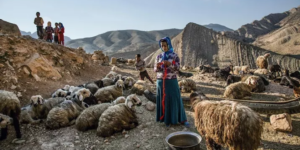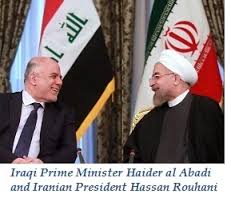
This is the introduction to a series of memos presented as part of a workshop organised by the LSE Middle East Centre on 13 June 2018, looking at Tribe and State in the Middle East.
Members of the Qashqai tribal confederation in Iran. Source: Globetrotters
On 13 June 2018, the LSE Middle East Centre organised a workshop entitled ‘Tribe and State in the Middle East’ gathering prominent academics from anthropological and political science backgrounds focussed on the role played by tribes in the region. The workshop had a particular focus on the Gulf states, those countries often dismissed as ‘tribes with flags,’ to see the extent to which these relatively newly independent states differ from other states in the region when it comes to the political salience of tribal identity.
The workshop discussed the difficulty in defining the very term tribe in a way that takes into account the multiple varieties in structure and function of such groups in different political and social settings. Workshop participants then delved into case studies of Iraq, Jordan, Syria, the Sahara, the Dhofar region, Kuwait, Saudi Arabia, and Qatar to show how tribes function within very different states throughout the Middle East.
By the end of the workshop, we had three main findings. First, perhaps it is most useful to apply Richard Tapper’s definition of tribe as an ideology, rather than as a distinct social or political unit, since its function differs depending on political, geographic, social, political, religious, and economic variables. Indeed, no single definition can capture the function of tribes in sub-Saharan Africa, Eastern Asia, and the Middle East – or perhaps even across different parts of the Middle East.
Second, tribe and state, as Alice Wilson explained, are both essentially ‘projects of sovereignty,’ and this is where their social and political power is derived. It is for this reason that tribes are also often regarded with some caution or suspicion by governments within the Middle East: as once autonomous groups providing the same services that the government now grants, they are seen as potential competitors and still serve as important markers of citizenship, especially in the Gulf states.
Third, tribes are not an anachronism and in fact are actually quite modern. We see evidence of this claim through tribes’ use of social media, branding, and the increasing prevalence of tribalism and tribes in tourism, again particularly in the Gulf states. It is therefore crucial that we continue to study the ways in which tribes have evolved and continue to adapt to new circumstances in the states they inhabit.
Ultimately, we concluded that tribalism as a concept remains very relevant in the states of the Middle East, even though tribes themselves have limited power in stable states of the region, wherein governments have taken over the functions that were once the purview of tribes. The relationship between tribe and state is therefore neither static nor predictable, making the continued study of this relationship all the more important to anthropologists and political scientists alike.
Courtney Freer is Research Officer at the Kuwait Programme, LSE Middle East Centre. Her research focuses on domestic politics of the Gulf states, with particular interest in Islamism and tribalism.
Source: LSE, Middle East Blog








Comment here